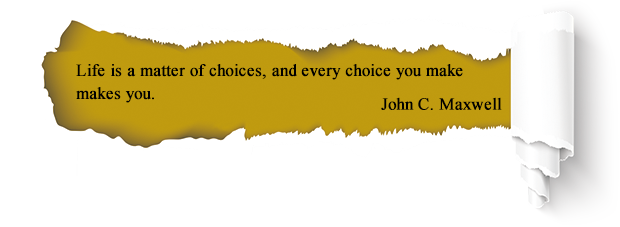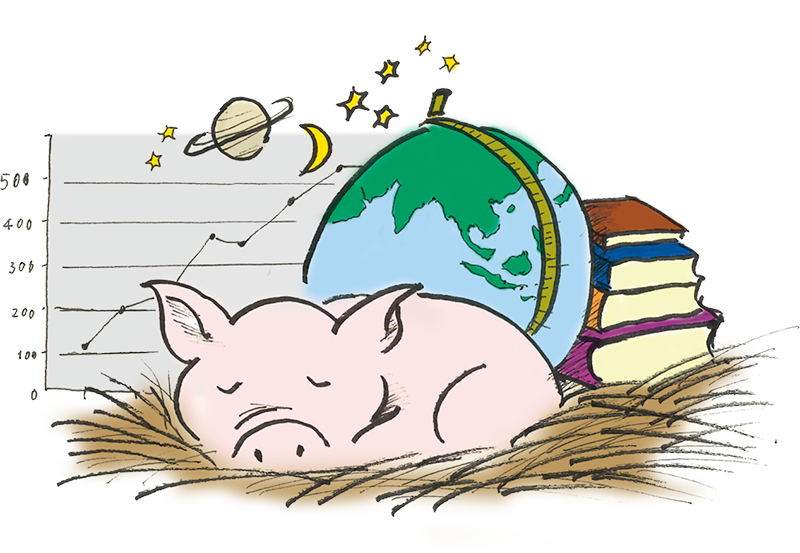

Do you know that you died last night? Well, almost. Your body was crushed in an accident, but your brain was connected to a supercomputer running a virtual reality programme. The computer is currently feeding stimuli into your brain so it seems to you as though you are still in a living body, living your old life in the real world. But everything seemingly existing around you, from the chair you are sitting in to the mouse you are holding, is actually virtual. You are no more than a pulsating grey mass kept alive in a vat, wired up to a computer.
You intuitively attempt to prove it otherwise, that you are not living in a fictitious world, but you may find that quite difficult. The “Brain in a Vat” is a very famous philosophical hypothesis and its underlying supposition has been the premise behind movies such as The Matrix. In The Pig That Wants to Be Eaten: And 99 Other Thought Experiments, Julian Baggini, a British philosopher, has collected 100 such thought experiments, each beginning with an imaginary scenario, followed by a few hundred words of thought-provoking discussion. The reader is introduced to a myriad of philosophical conundrums and ethical dilemmas covering reality, religion, epistemology, ethics and morals, logic and language, self-consciousness, and more.
The book provides not just food for thought, but a smorgasbord of the canon of Western philosophy, from Plato to Pascal, and from Russell to Ryle. Baggini rehashes some of the ideas in a more appealing way. Plato’s Cave becomes a secret sect where no one can escape; the prisoner’s dilemma is framed in terms of marital relationships; the old adage “If a tree falls in a deserted forest, does it make a sound?” is turned into a tale of aliens with unusual sense perception. Some ideas have their roots in modern fiction. For instance, the pig of the title is inspired by the talking bovine in Douglas Adams’s The Restaurant at the End of the Universe. It presents itself to diners as the main dish and makes such suggestions as this, “May I urge you to consider my liver? ... It must be very rich and tender by now, I’ve been force-feeding myself for months.” Some people go vegan because they think slaughtering animals is wrong. But what if the animal were genetically engineered to have no interest in its own survival or to want nothing more than to be eaten? Would eating such an animal, however revolting the idea might sound, be morally justified?
Baggini points out that such thought experiments are designed to “isolate the key variables, the specific factors under examination, to see what difference they, and they alone, make to our understanding of the world”. When the laboratory is in the mind and imagination is the only apparatus, kept in check only by logic and reasoning, then floating brains and pigs that want to be eaten are only starters. Baggini’s book is as fascinating and enthralling as a fantasy fiction. Readers will encounter a demon who systematically deceives us, poor Achilles forever trying yet failing to catch up with the tortoise, a talking parrot fighting for his rights, and a computer instigating lawsuits against her owner. Most of the stories are good, some fabulous, a few of them too abstract, but without doubt all entertaining and enlightening.
Apart from the outlandish stories exploring abstract philosophical issues, there are realistic scenarios in which the reader is challenged with mind-bending questions and dilemmas with no easy answers. Would you return the extra money mistakenly dispensed by an ATM machine? If you could only save your spouse or 12 people, which option would you choose? Is it right to do something wrong if no one is hurt? What role does luck play in ethics? Is it moral to torture an innocent peron in order to save a hundred? Baggini offers no firm answers. He may challenge the obvious, give hints as to where the discussion might go next or play the devil’s advocate. But in trying to come up with solutions, it is clear that what we are actually doing is questioning our own beliefs and values.
While even the existence of the physical world is called into doubt, Descartes assures us that, Cogito, ergo sum, or “I think, therefore I am.” Our capacity to think critically and rationally enables us to have diverging perspectives and make choices—and life is all about choices. Baggini’s book evokes introspection and provides a depth of insight, inspiring the reader to re-examine conventional wisdom, as well as one’s own assumptions and knee-jerk opinions. To quote the author, “Many lines of thought can be started from this book. But none ends in it.”













